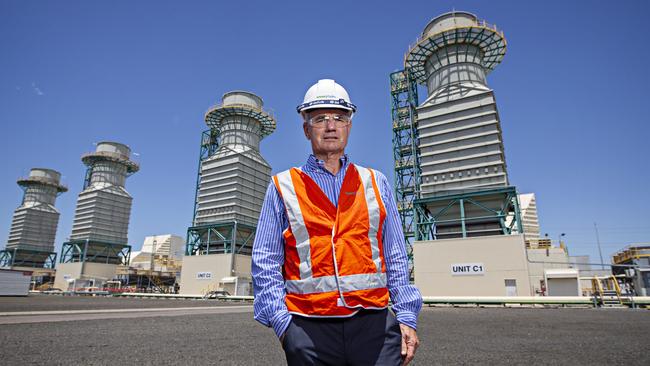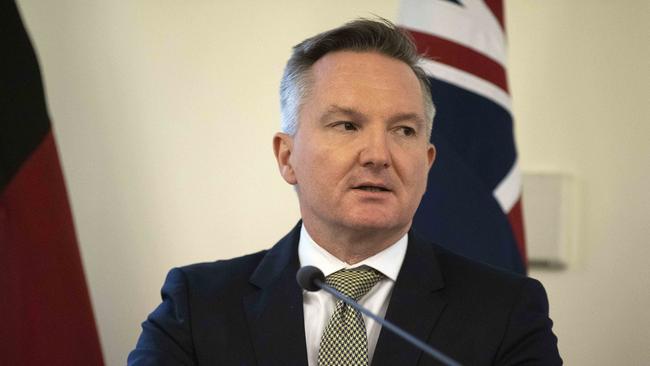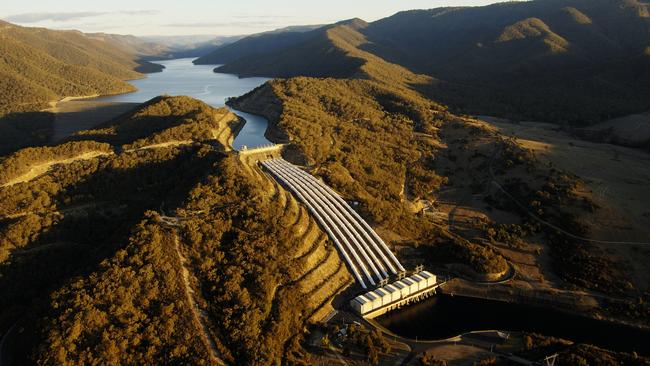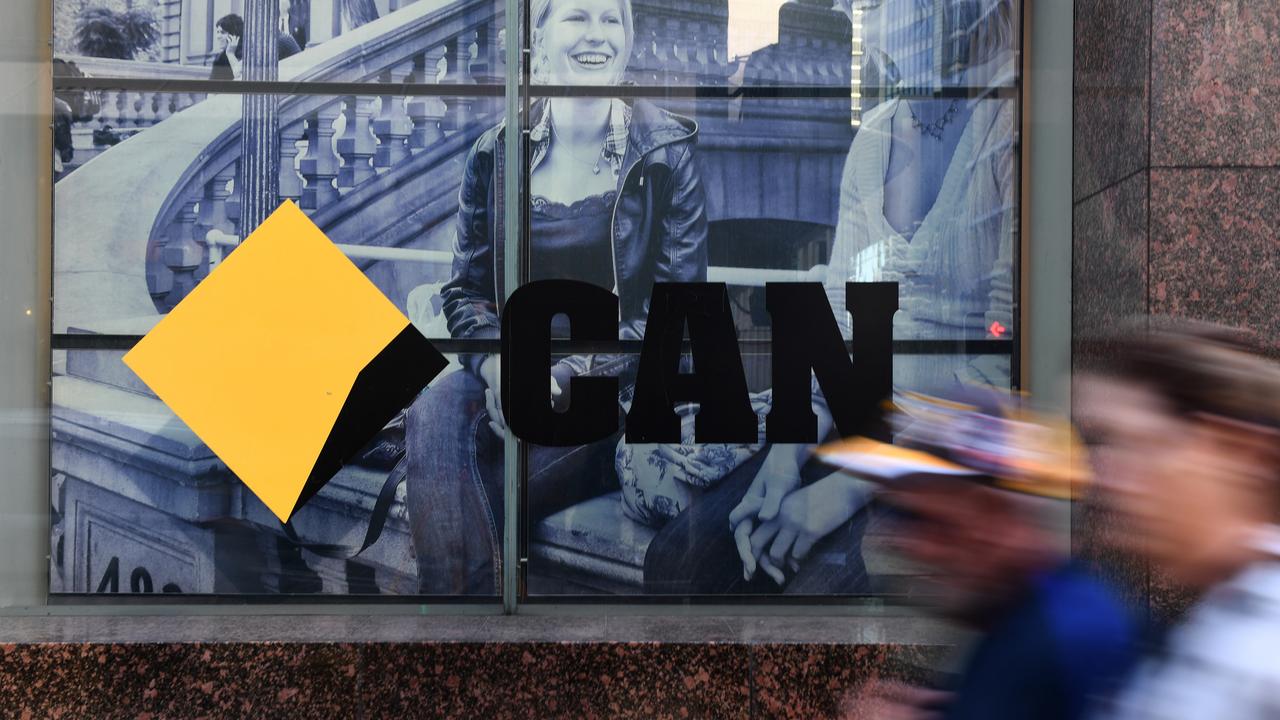Snowy CEO Paul Broad quits amid $2.2bn cost blowout threat
Snowy Hydro boss Paul Broad has dramatically quit the government-owned energy company amid cost blowouts and a disagreement with Energy Minister Chris Bowen.

Business
Don't miss out on the headlines from Business. Followed categories will be added to My News.
Snowy Hydro chief executive Paul Broad has sensationally quit following revelations by The Australian the company’s giant hydro expansion had been hit with $2.2bn in cost overrun claims by its lead contractor and controversy over its Kurri Kurri gas power plant in NSW.
A series of cost variation claims were lodged with the government-owned Snowy by the Future Generation venture, comprising Italy’s WeBuild and Perth-based Clough, demanding a more than 40 per cent increase due to the spiralling costs. The landmark project also faces a 18 month delay, further crimping electricity shortages in the power grid.
Mr Broad is understood to have disagreed over a series of issues with Federal Energy Minister Chris Bowen at a meeting on Tuesday following The Australian’s report the prior day. A spat with the Snowy boss over introducing green hydrogen to the Kurri gas plant also contributed to tensions.
“Paul Broad, managing director and CEO of Snowy Hydro, has offered his resignation,” Snowy said in a statement. “For more than 70 years Snowy Hydro’s success has been founded on strong and stable leadership. Paul Broad is no exception to that rule.”

The combative Snowy boss has been under immense pressure as the hydro expansion faces issues with its main contractors over payment claims worth more than $2bn.
Still, the timing of his exit amid construction of one of Australia’s biggest infrastructure projects was far from ideal, according to Dylan McConnell, a research fellow with the University of Melbourne’s Climate and Energy College.
“It’s unsurprising given the substantial cost blowouts and delays for Snowy 2.0 and controversy around Kurri Kurri,” Mr McConnell said.
“Leaving in the middle of a complex project is awkward timing to be looking for a new CEO.”
An 18-month delay to the project was confirmed by Mr Bowen in June, with the new timeline blamed on a series of issues including bushfires and the pandemic hitting supply chains and restricting the availability of workers.
Mr Broad had endured a “tough road” and made his own choice to leave the company, according to chairman David Knox.
“We’re very sad to see him go. This is a decision he’s made. We discussed it with him this week and he said the time was right. It’s always a difficult thing to do. But there is a time and he’s decided that the time is right for him to step down,” Mr Knox told The Australian.
“At the end of the day it‘s been a tough road with everything he’s had to manage, particularly the bushfire and pandemic and a huge project and he decided now is the time.”
Snowy’s relationship with Labor was excellent, Mr Knox added.
“I think Snowy as a whole has the respect and the full support and attention of the new Labor administration. We are in a place where we are seeking to support the decarbonisation of the national electricity market. Labor is seeking to do exactly the same thing. So we are aligned, which is very helpful.”
Snowy chief operating officer Roger Whitby will lead the organisation on an interim basis with a search for a new leader underway.
Mr Bowen thanked Mr Broad in a brief message.
“The government values Snowy Hydro and its critical role in supporting a changing grid,” Mr Bowen‘s spokeswoman said. “The Albanese government notes the resignation today of SnowyHydro CEO Paul Broad after almost ten years of service, and thanks him for his work in the energy market over that period.”
Snowy locked in a $5.1bn budget for the expansion in April 2019 under a turnkey contract which allows little room for major cost changes.
While negotiations between the builders and Snowy are believed to be continuing, sources said both WeBuild and Clough faced substantial losses on the development should they fail to offset costs caused by the pandemic and supply chain issues, which had dramatically increased the price of raw materials such as steel, among other things.

Mr Bowen also faces pressure to deliver on Labor’s promise of building $20bn worth of transmission infrastructure to stabilise the National Electricity Market and support the entry of more renewable power into the grid.
The pressure on the Future Generation JV is just one sign of the growing pressure contractors are feeling amid labour shortages, sharp cost inflation for key construction materials and the lingering impact of the pandemic.
Joint venture partner Clough is also working with Elecnor in a $1.5bn contract for the engineering, procurement and construction of Transgrid’s EnergyConnect project, designed to provide a link between the South Australian and NSW, a key part of Labor’s Rewiring the Nation program.
Snowy’s reluctance to cover blowouts in the budgets of its main contractors then flows down the chain to smaller subcontractors, less able to deal with the impact of delayed payments and disputed bulls.
Industry sources say the troubles at Snowy 2.0 could be just the most visible sign of troubles that lie ahead for Mr Bowen as he looks to implement one of Labor’s signature election promises.
Shadow minister for climate change and energy, Ted O’Brien, said Mr Broad’s departure may have partly been linked to him expressing doubts over Labor’s pre-election plan to eventually convert the gas-fired Hunter Power Project at Kurri into a green hydrogen plant.
“Labor’s energy minister refuses to accept the role of gas in an orderly energy transition and now we know how far he is willing to go to get his way,” Mr O’Brien said.
The 71 year-old Mr Broad was appointed chief executive nine years ago in July 2013. The Newcastle-based executive previously led Infrastructure NSW, AAPT, PowerTel, EnergyAustralia, Sydney Water and Hunter Water.
A long-time critic of the Snowy 2.0 expansion on Friday labelled the project a “train smash” and questioned accountability on the high-profile $5.1bn development.
“Snowy 2.0 is proving to be the train smash that it was clearly destined to be. The public accountability on this project has been appalling. The government must now commission an independent inquiry to understand the failures at the level of the Snowy Hydro Board and also in relevant government departments that have led to this failure,” Victoria Energy Policy Centre director Bruce Mountain said.
Concerns over the planned $600m Kurri Kurri gas plant in Newcastle have also drawn criticism with conjecture over whether the generator was needed in the power grid.
“The Government must also not put an immediate halt to Kurri Kurri and it must itself establish the economic and environmental merits of Kurri Kurri and communicate its assessment publicly,” Mr Mountain said.
The Newcastle gas plant was conceived to fill a gap once AGL Energy’s 1680 megawatt Liddell coal plant closes in April 2023.
It immediately attracted controversy and some disquiet by Snowy’s competitors after the Morrison government gave companies a short deadline to deliver an extra 1000 megawatts of dispatchable power over fears that NSW could struggle for supplies once Liddell closed.
Former Energy Minister Angus Taylor subsequently determined that because the private sector failed to meet the goal, Snowy would build the Kurri plant to fill the gap. Adding another fossil fuel plant to the energy mix also sparked fury, which Snowy sought to allay through a hydrogen component.
At an estimated cost of around $600-700m, Snowy said the gas plant would deliver a rate of return topping 10 per cent. Still, if it does proceed it will likely require the government as its sole shareholder to tip in some funds to get the project over the line, given balance sheet pressures from the 2.0 project.
The Coalition paid $6bn in 2018 to win control of Snowy after buying stakes owned by the NSW and Victorian governments. Former Prime Minister Malcolm Turnbull had proposed a feasibility study the year before for the expansion project, which involves pumping water uphill during off-peak periods and then releasing it when there are gaps in supply.
Snowy is Australia‘s fourth largest energy retailer with 1 million power customers through its Red and Lumo brands.
Originally published as Snowy CEO Paul Broad quits amid $2.2bn cost blowout threat


